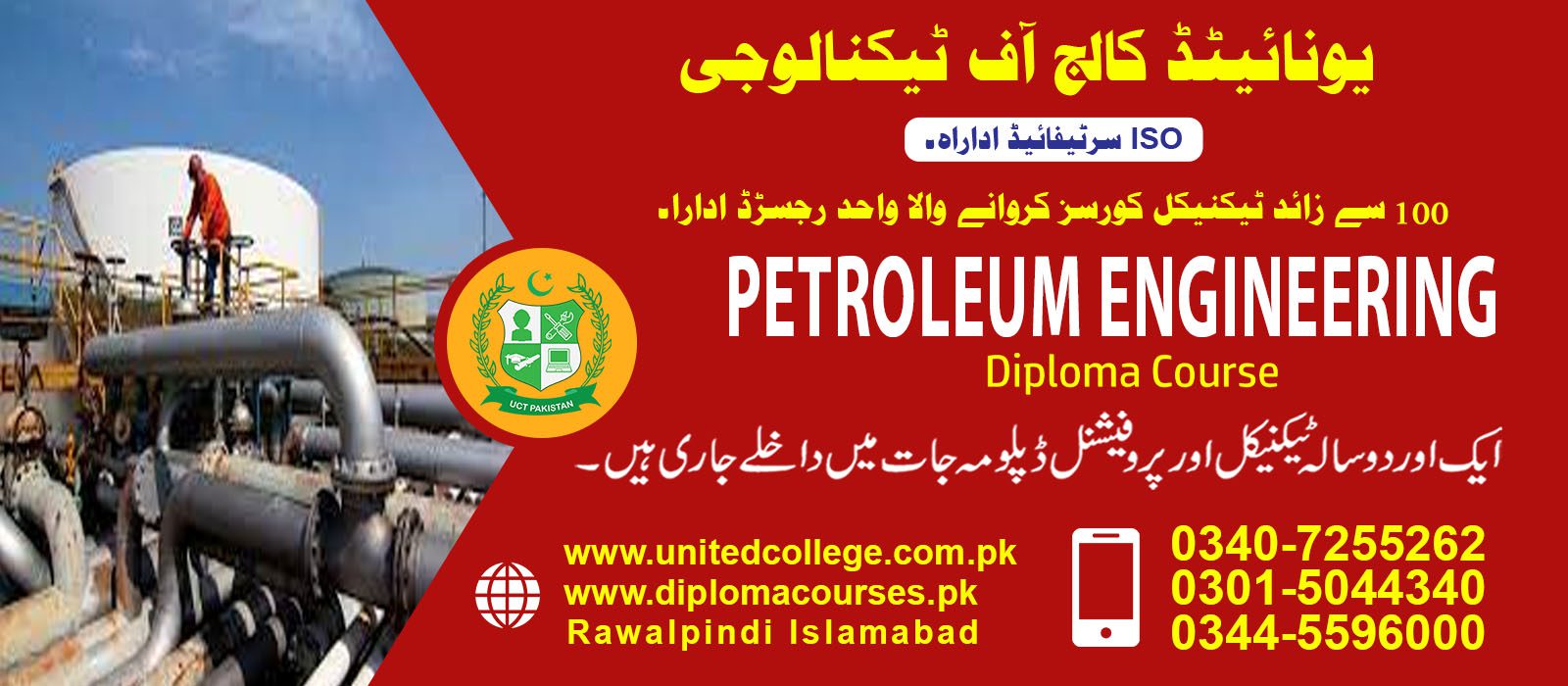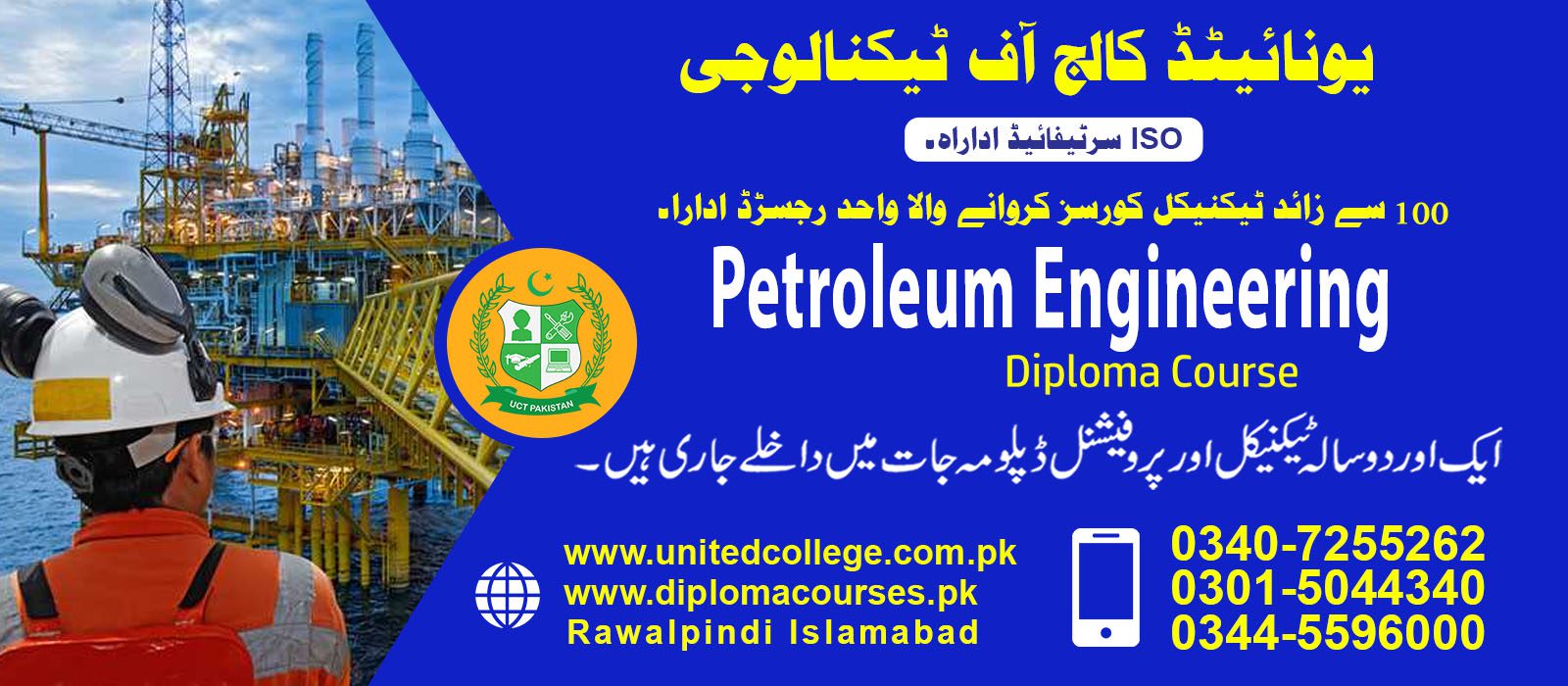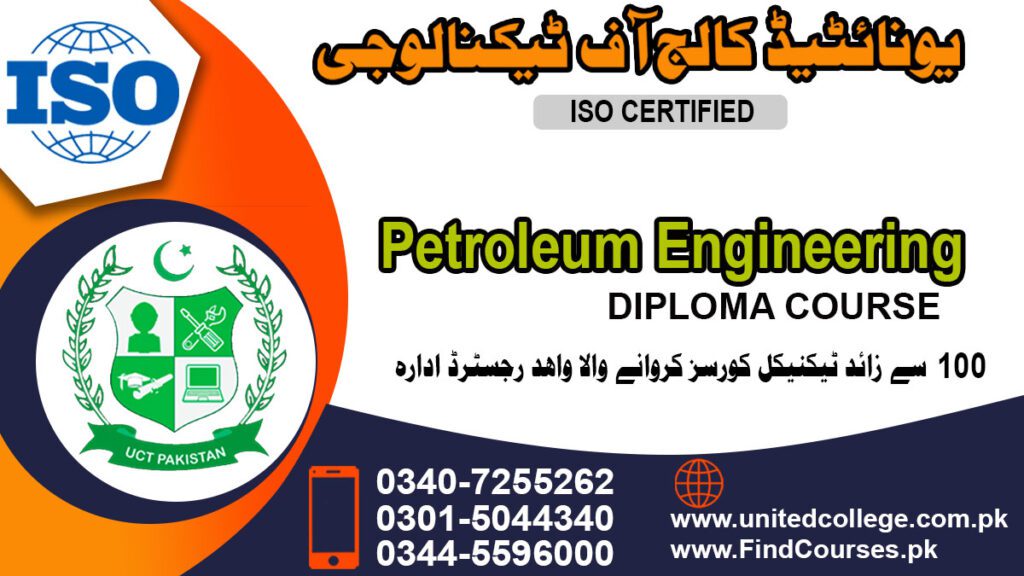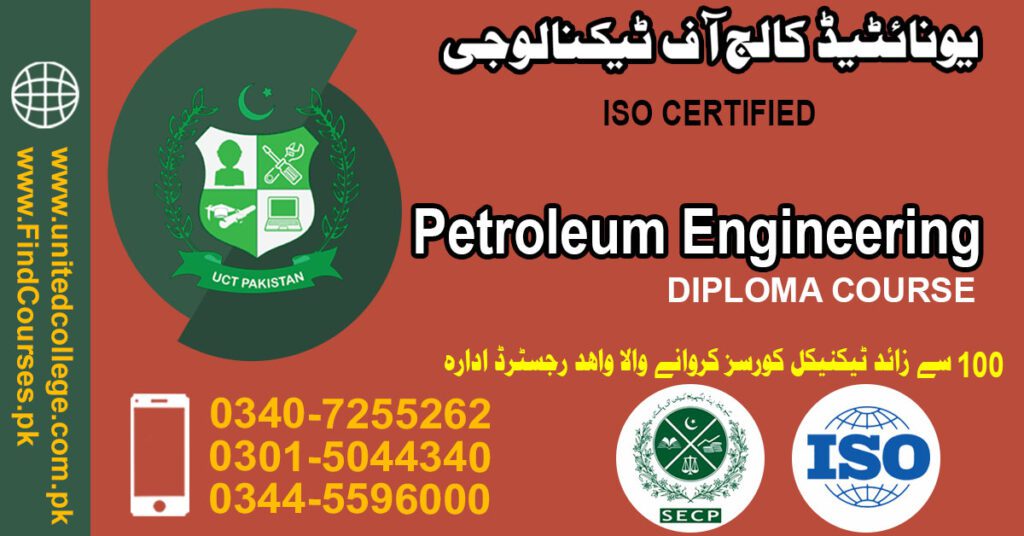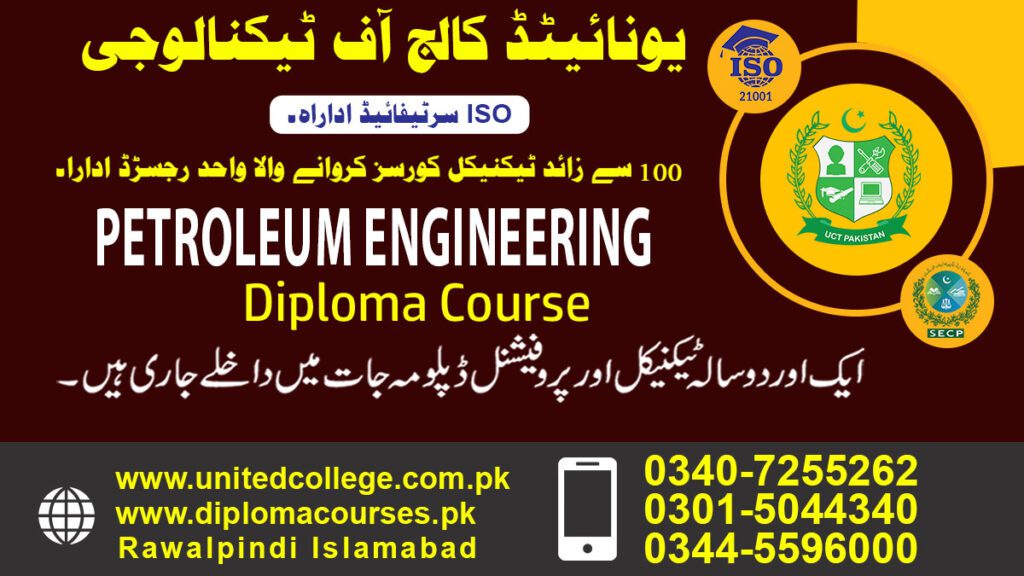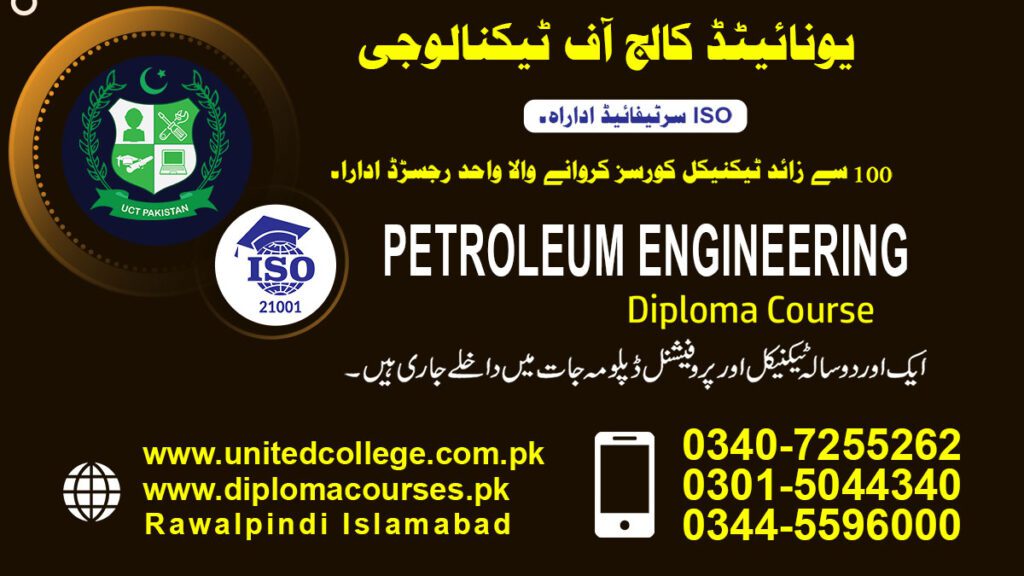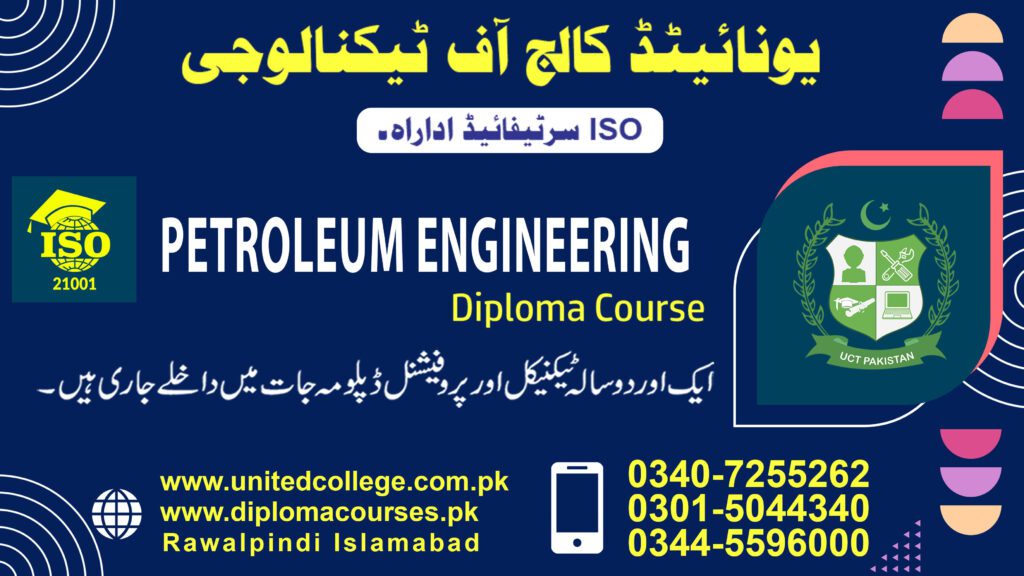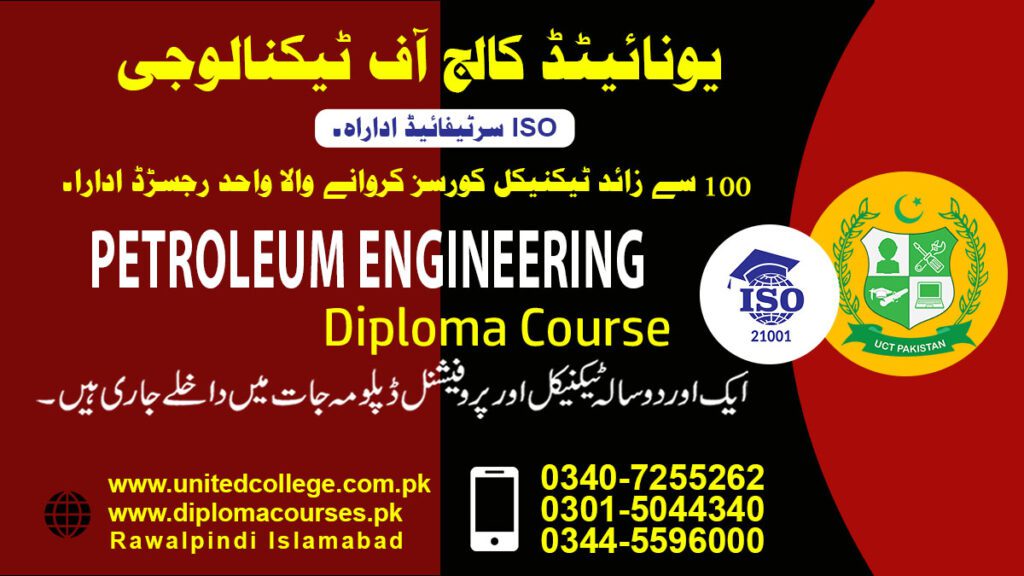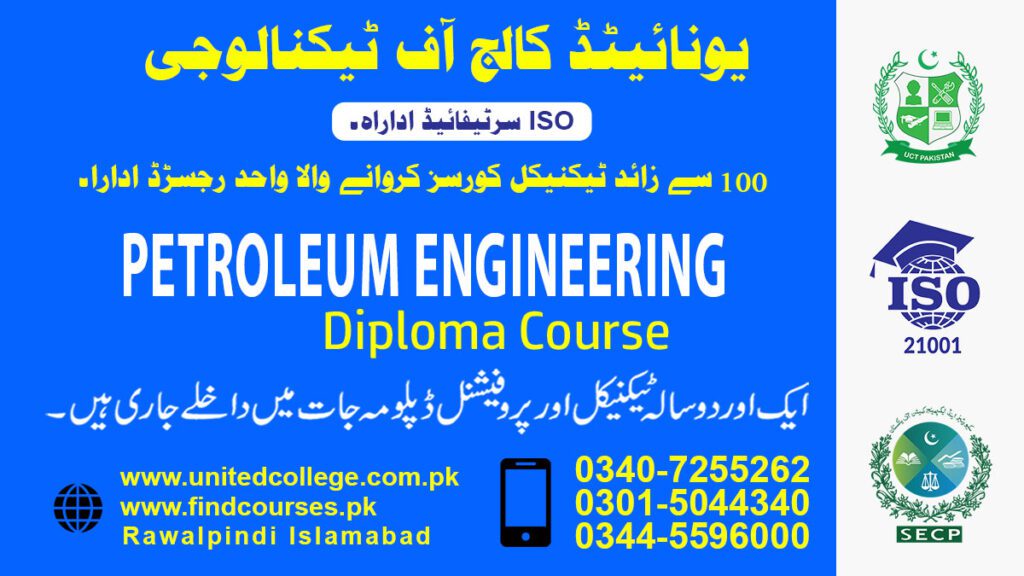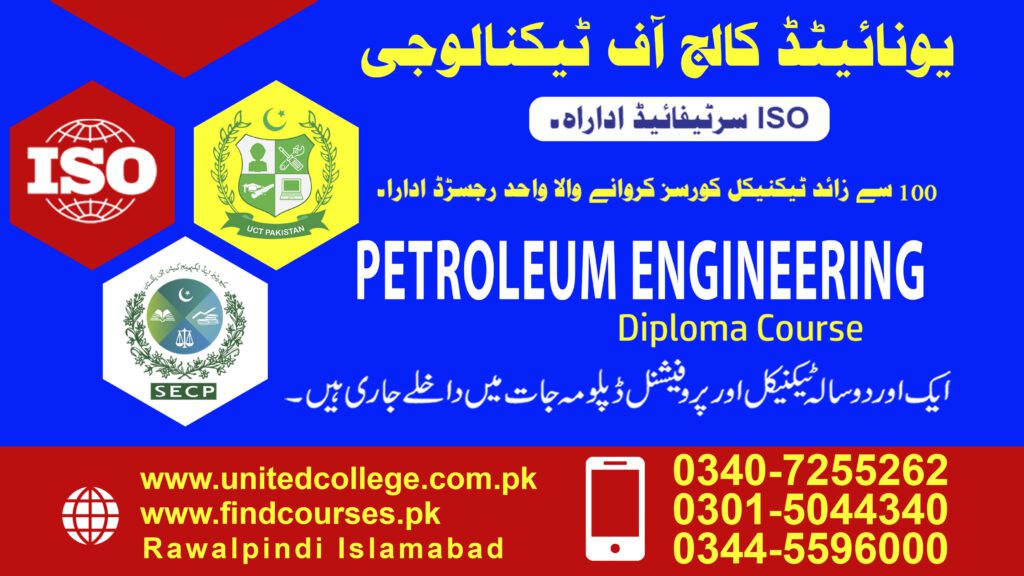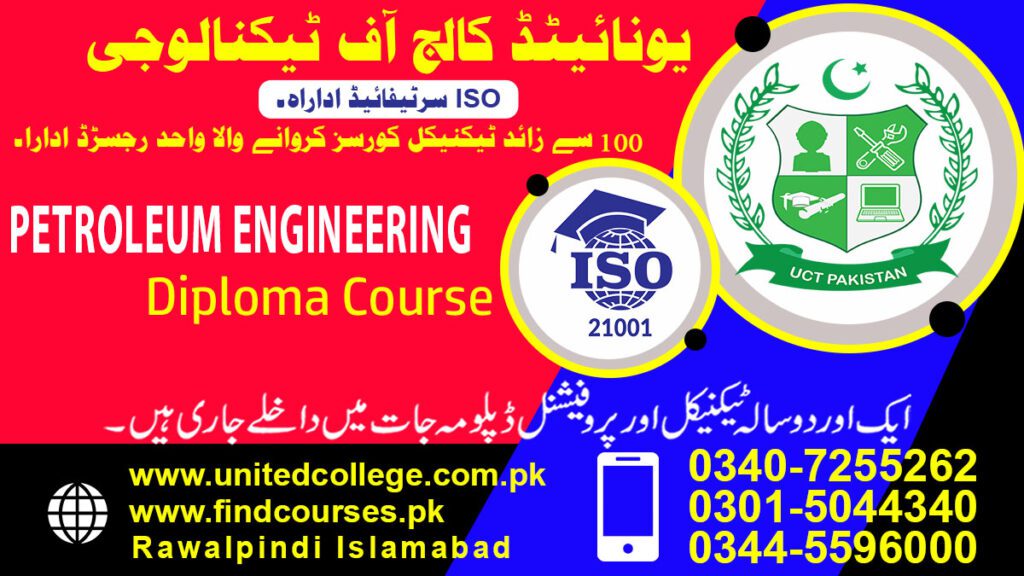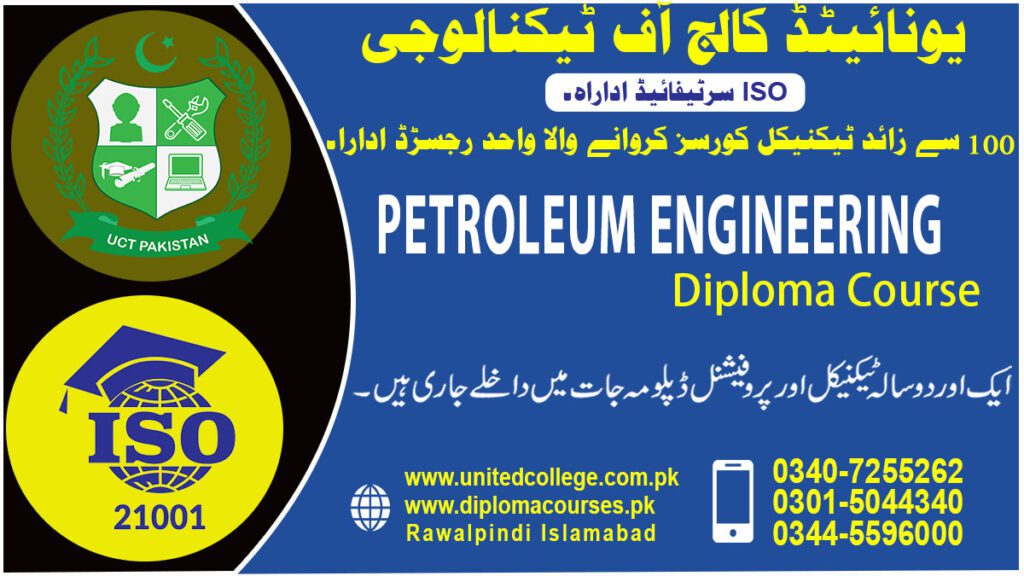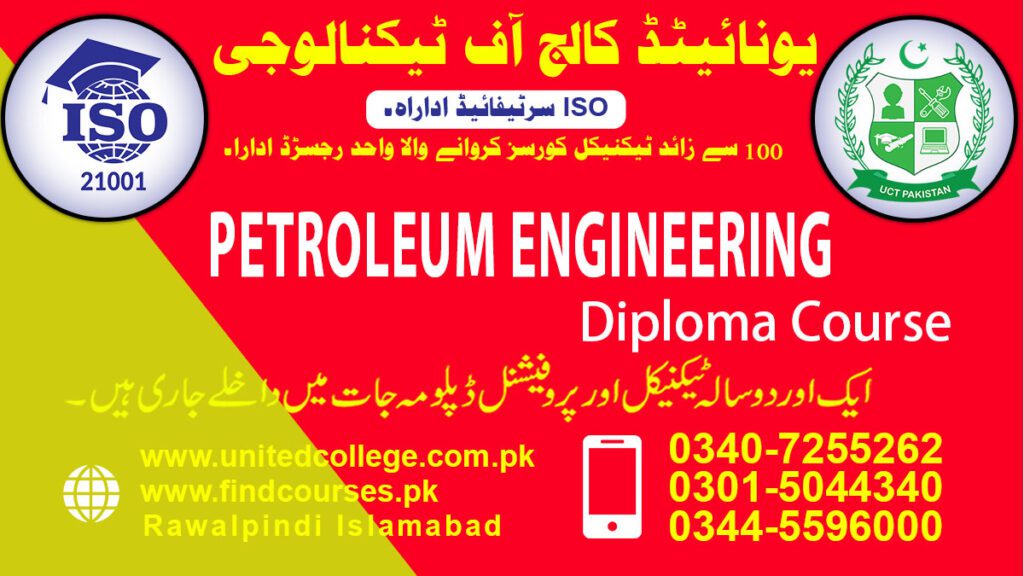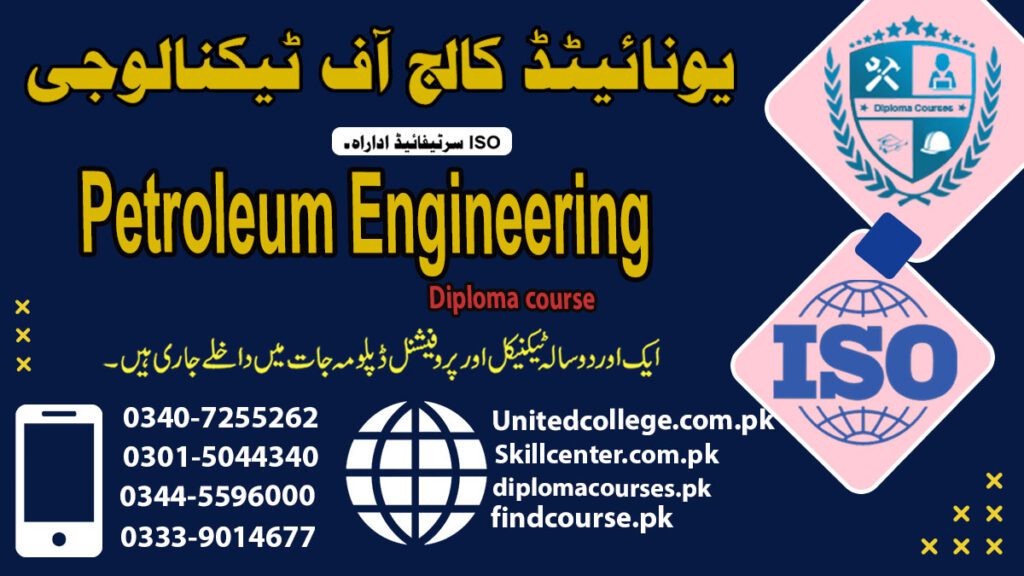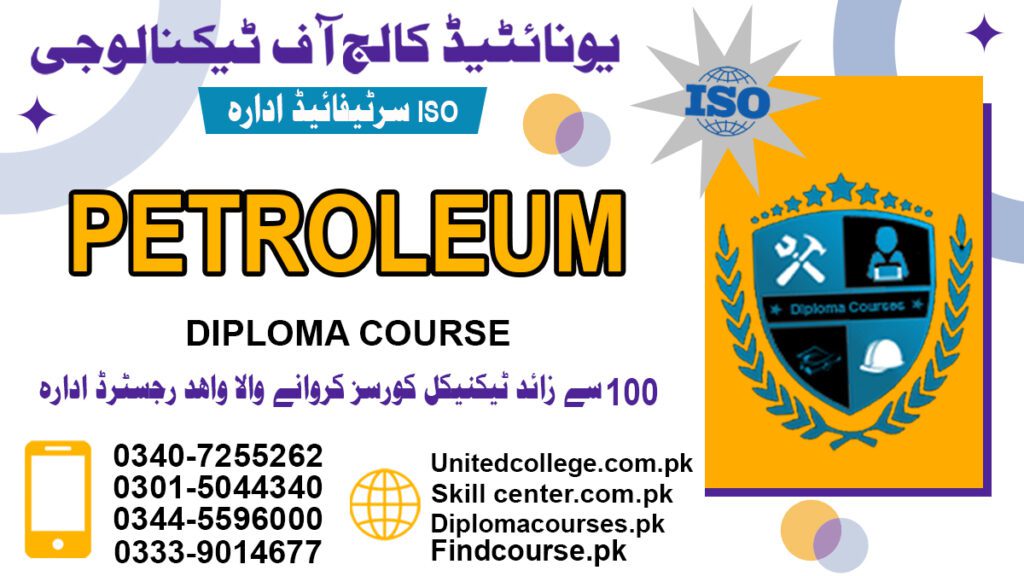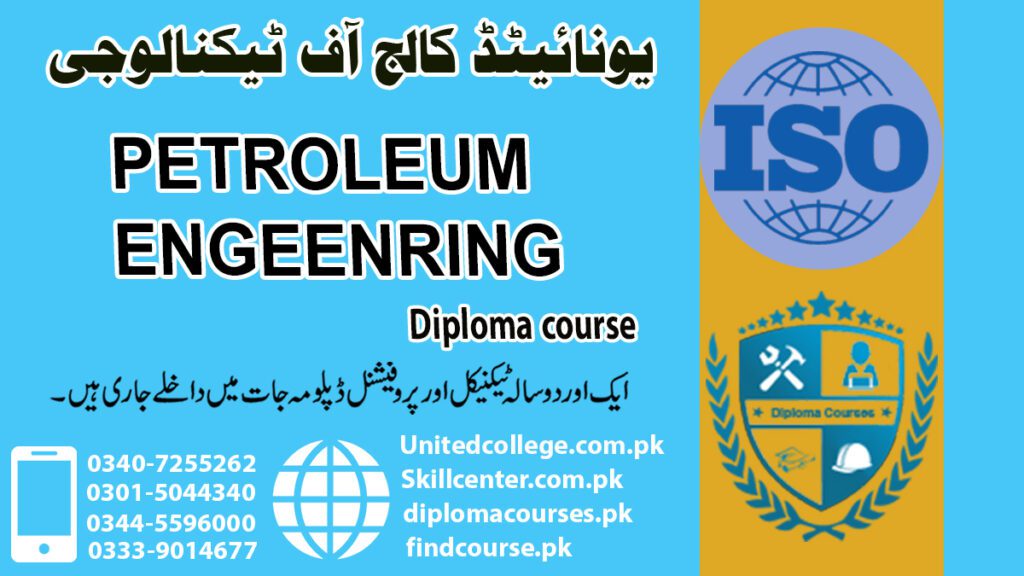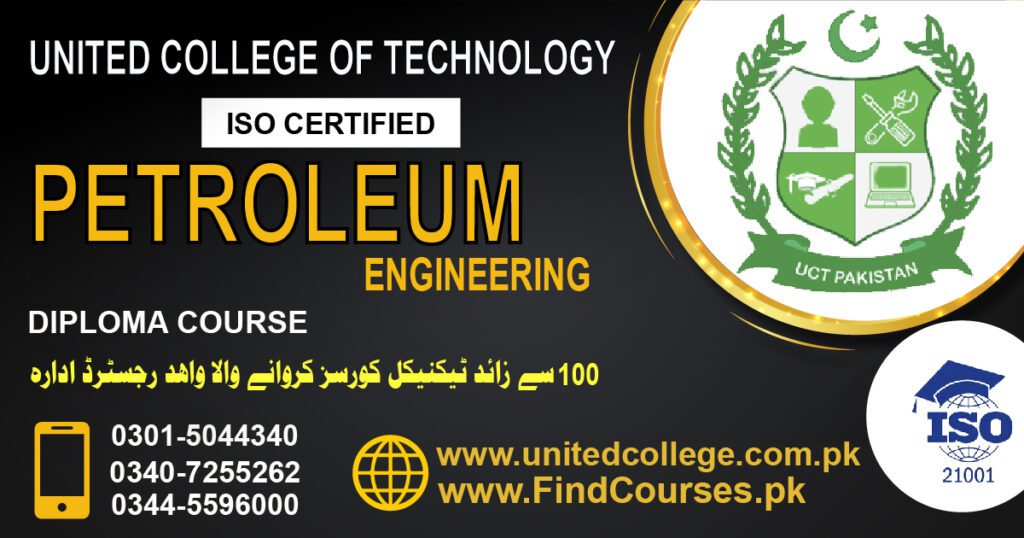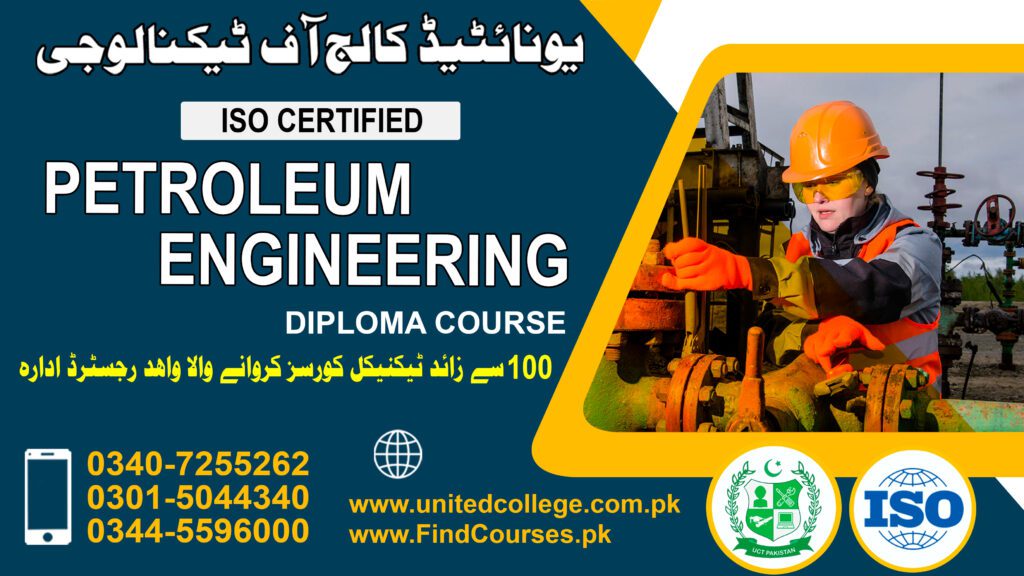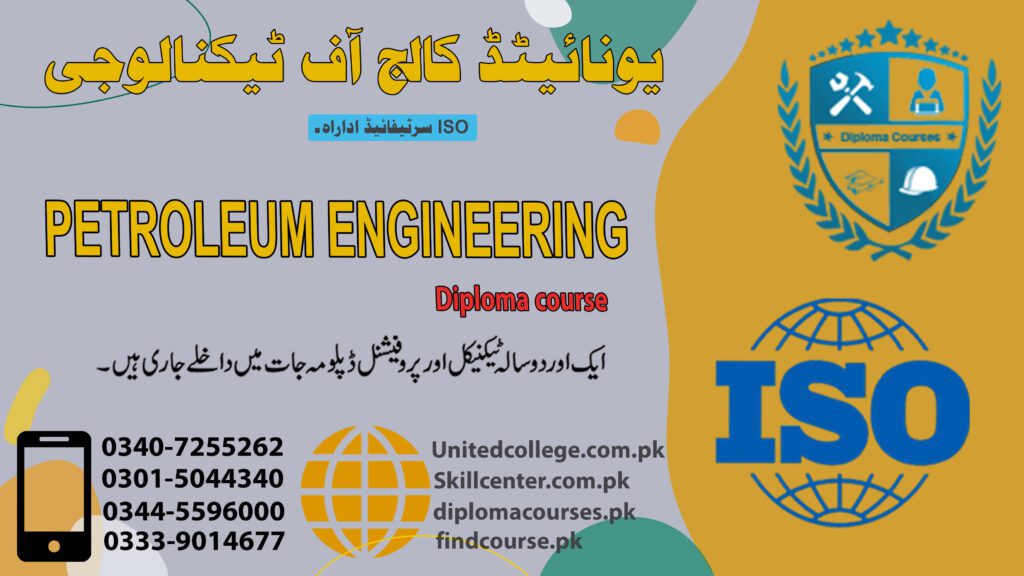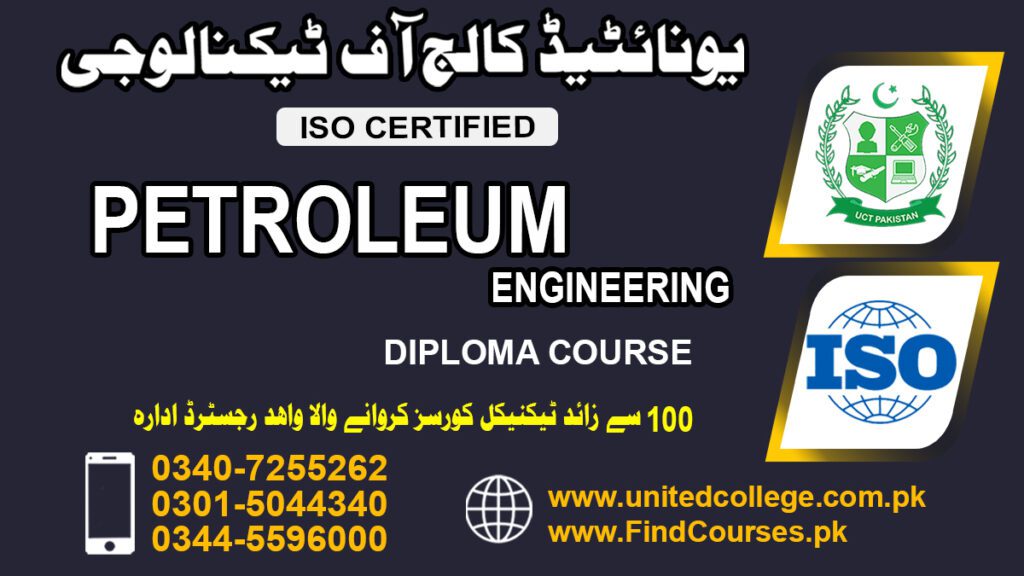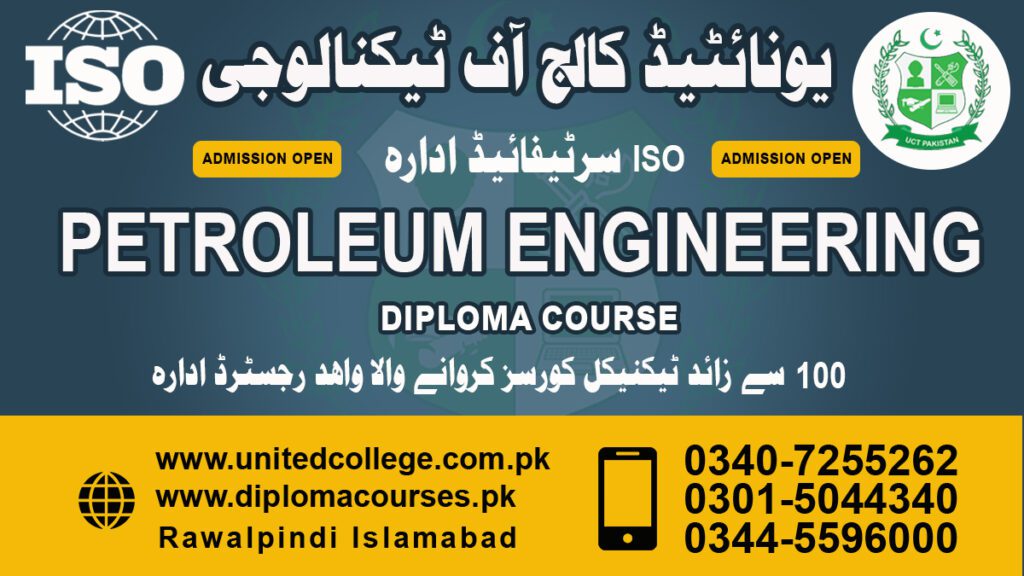PETROLEUM ENGINEERING COURSE IN RAWALPINDI ISLAMABAD PAKISTAN

Petroleum Engineering Diploma Course in Rawalpindi Islamabad Pakistan 0344-5596000
Introduction:
Welcome to the Petroleum Diploma Course! This comprehensive course is designed to provide you with a solid understanding of the petroleum industry, its operations, and the various aspects of petroleum exploration, production, refining, and distribution. By the end of this course, you will have gained valuable knowledge and skills to pursue a career in the petroleum sector.
Throughout the course, you will learn about the fundamental concepts, processes, and technologies involved in the petroleum industry. You will explore topics such as geology, drilling techniques, reservoir management, refining processes, and environmental considerations. Additionally, you will gain insights into the economic and regulatory aspects of the petroleum industry.
Here is an introduction to the topics covered in the Petroleum Diploma Course:
- Introduction to the Petroleum Industry
- Overview of the petroleum industry and its significance in the global economy
- Exploration, production, refining, and distribution processes
- Key players and organizations in the petroleum sector
- Petroleum Geology and Reservoir Engineering
- Introduction to petroleum geology and the formation of oil and gas deposits
- Reservoir types, characteristics, and evaluation methods
- Reservoir engineering techniques for optimizing production
- Drilling and Well Completion
- Drilling techniques and equipment used in the petroleum industry
- Well-completion methods and technologies
- Well integrity and maintenance practices
- Production and Recovery Methods
- Primary, secondary, and tertiary recovery methods
- Artificial lift systems and techniques
- Enhanced oil recovery (EOR) methods
- Petroleum Refining and Petrochemicals
- Refinery processes and operations
- Crude oil distillation, conversion, and treatment
- Petrochemical production and applications
- Oil and Gas Transportation and Storage
- Overview of oil and gas transportation methods (pipelines, tankers, etc.)
- Storage and handling of petroleum products
- Safety and environmental considerations in transportation and storage
- Economics and Business Aspects of the Petroleum Industry
- Economics of the petroleum sector (supply and demand, pricing mechanisms, etc.)
- Investment analysis and project evaluation in the petroleum industry
- Contractual frameworks and regulations in the petroleum sector
- Environmental and Sustainability Considerations
- Environmental impacts of petroleum exploration, production, and refining
- Environmental regulations and compliance
- Sustainable practices and alternative energy sources in the petroleum industry
- Health, Safety, and Risk Management
- Occupational health and safety practices in the petroleum industry
- Hazard identification, risk assessment, and mitigation measures
- Emergency response and crisis management procedures
- Emerging Trends and Technologies in the Petroleum Industry
- Advances in exploration and production technologies
- Digitalization and data analytics in petroleum operations
- Renewable energy integration and diversification
- Project Management and Leadership Skills
- Project planning, execution, and monitoring in the petroleum industry
- Leadership and communication skills for effective management
- Teamwork and collaboration in petroleum projects
- Career Development and Professionalism
- Job opportunities and career pathways in the petroleum industry
- Professional ethics and standards in the field
- Continuous learning and professional development in the petroleum sector
Please note that the specific content and depth of each topic may vary depending on the course provider and the intended audience. Additionally, practical exercises, case studies, and industry visits may be incorporated into the course to provide practical experience and real-world insights into the petroleum industry.
Petroleum Engineering Diploma Course Outline:
Module 1: Introduction to Petroleum Industry
- Overview of the petroleum industry and its significance
- Exploration and production activities
- Global energy demand and supply dynamics
Module 2: Geology and Reservoir Evaluation
- Petroleum geology and sedimentary basins
- Reservoir rock properties and characterization
- Reservoir evaluation techniques and tools
Module 3: Drilling Engineering
- Drilling rigs and equipment
- Drilling fluids and well control
- Casing and cementing operations
Module 4: Well Testing and Production Operations
- Well-completion and production techniques
- Well testing and flow measurement
- Surface facilities and production optimization
Module 5: Petroleum Refining and Processing
- Refinery processes and operations
- Crude oil distillation and refining
- Gas processing and petrochemical production
Module 6: Oil and Gas Transportation
- Pipeline transportation and operations
- Offshore loading and storage systems
- Tanker transportation and terminal operations
Module 7: Health, Safety, and Environment
- Safety practices and regulations in the petroleum industry
- Environmental considerations and impact mitigation
- Risk assessment and management
Module 8: Reservoir Engineering and Simulation
- Reservoir engineering principles and practices
- Reservoir simulation and modeling
- Reserves estimation and production forecasting
Module 9: Enhanced Oil Recovery Techniques
- Principles and applications of enhanced oil recovery (EOR)
- Waterflooding and chemical injection methods
- EOR evaluation and implementation
Module 10: Upstream Economics and Project Management
- Economic evaluation of petroleum projects
- Cost estimation and cash flow analysis
- Project management techniques and practices
Module 11: Petroleum Contracts and Legal Framework
- Types of petroleum contracts and agreements
- Regulatory frameworks and government policies
- International petroleum laws and disputes
Module 12: Emerging Trends and Technologies in the Petroleum Industry
- Digitalization and data analytics in petroleum operations
- Renewable energy integration and sustainability
- Future challenges and opportunities in the industry
Course Fee: 65,000/-
Daily Class: 2 Hours
Course Duration: Two Years
Morning / Evening
Call For Registration: 0344-5596000 / 0333-9014677 / 0340-7255262


